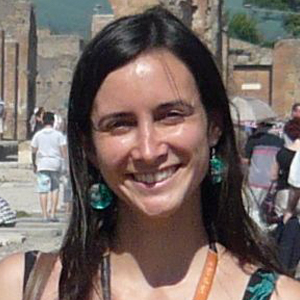Double vision
She was searching for something to contribute to a professor’s birthday symposium when she started noticing images in the protein structures he had published: a birthday present, then a cat bringing a birthday cake. She made a simple animation of the images using PowerPoint so that she could contribute something to the celebration. “It was not very artistic in the beginning,” she recalls.
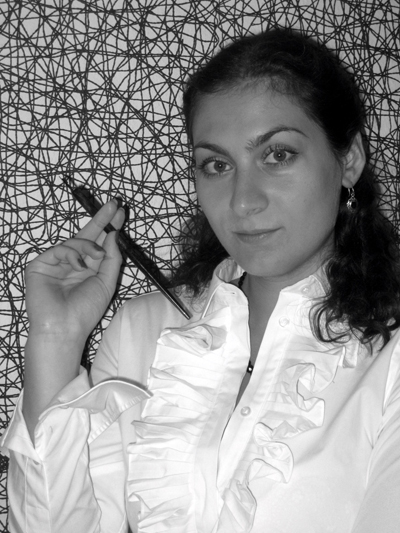
Most biochemists look to the Protein Data Bank for structural data, but Maja Klevanski looks to it for artistic inspiration. Klevanski, a graduate student at the University of Heidelberg, first got the idea of translating the ribbon models of protein structures into art when she was preparing her diploma thesis at Harvard.
But over time, her method has become more elaborate. To find her images, she rotates protein structures until she begins to see something interesting and then begins a painstaking process of drawing over the structure, redrawing and tweaking the rotation until the image in her mind is fully realized on the page.
Last year, a collage of her work titled “Nature playing chess” reached the top 10 in the illustration category of the 2012 International Science and Engineering Visualization Challenge. She says she hopes to publish a book one day that combines her art with the science behind it. “But, first of all, I have to finish my Ph.D.!” she says.
You can find more of her work at her website, where she also takes requests to re-imagine your favorite protein: www.protein-art.com.
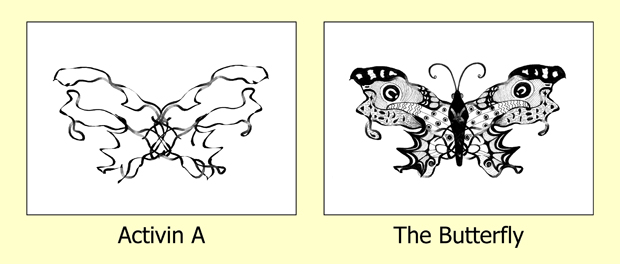
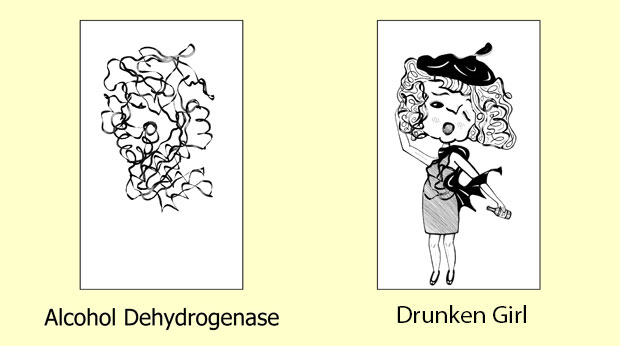
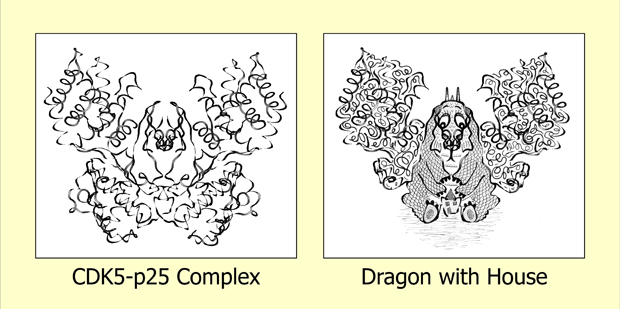
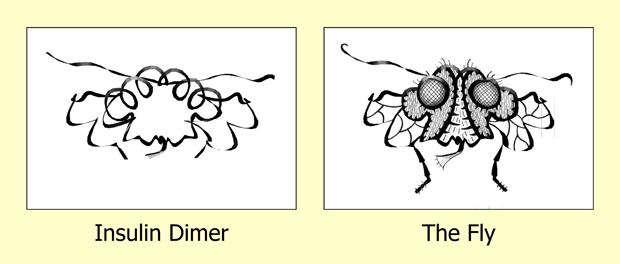
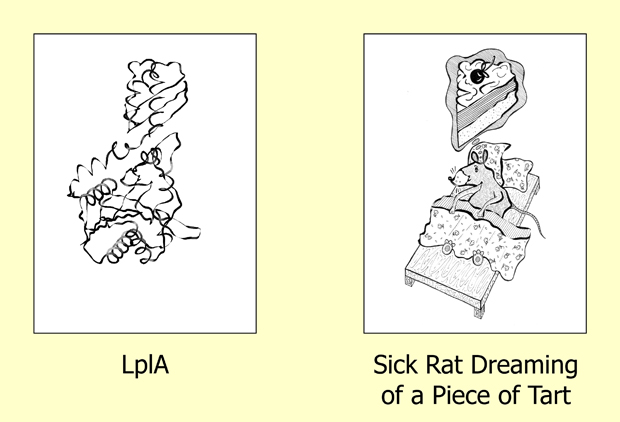
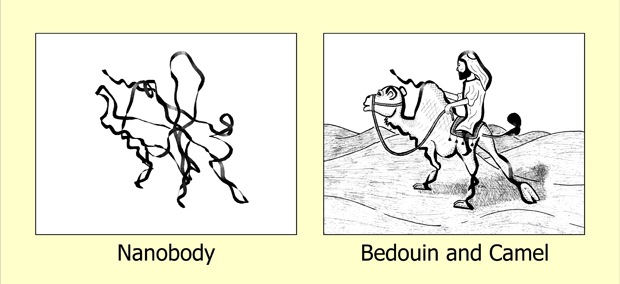
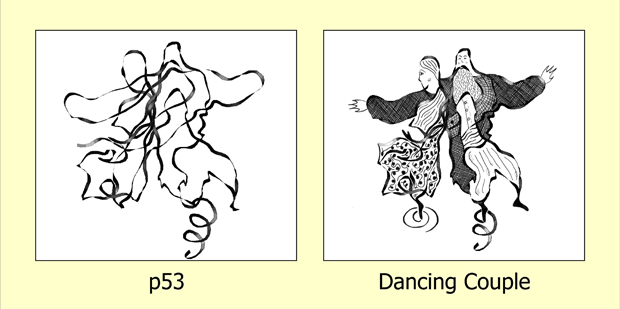
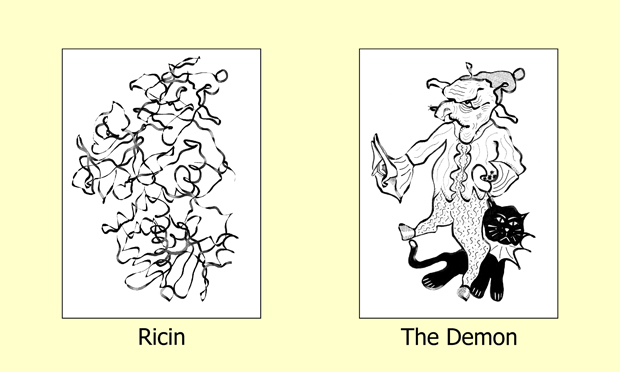
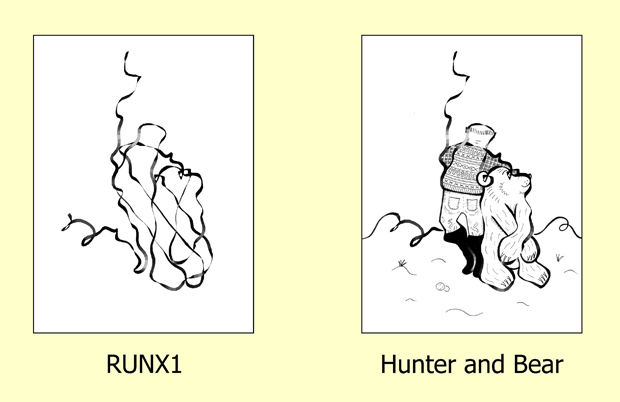
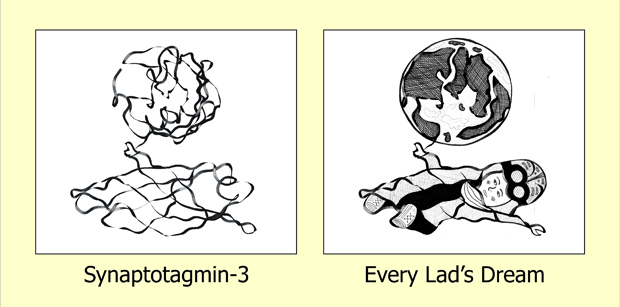
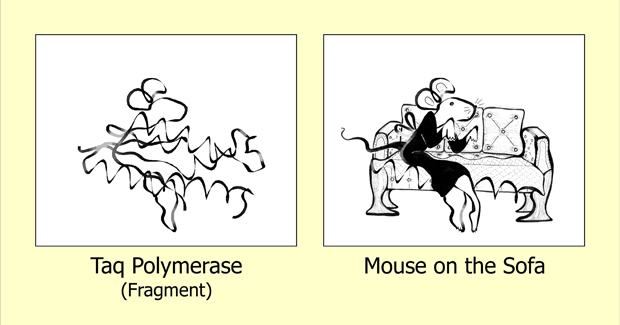
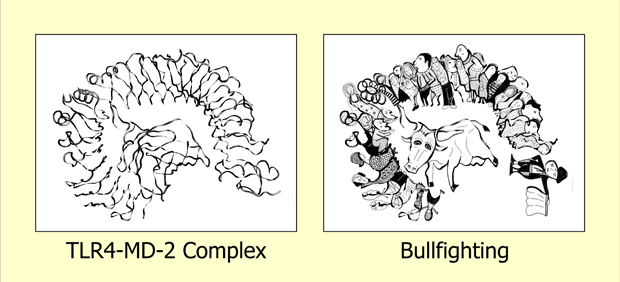
Enjoy reading ASBMB Today?
Become a member to receive the print edition four times a year and the digital edition monthly.
Learn moreGet the latest from ASBMB Today
Enter your email address, and we’ll send you a weekly email with recent articles, interviews and more.
Latest in People
People highlights or most popular articles

Kiessling wins glycobiology award
She was honored by the Society for Glycobiology for her work on protein–glycan interactions.

2026 ASBMB election results
Meet the new Council members and Nominating Committee member.

Simcox wins SACNAS mentorship award
She was recognized for her sustained excellence in mentorship and was honored at SACNAS’ 2025 National Conference.

From humble beginnings to unlocking lysosomal secrets
Monther Abu–Remaileh will receive the ASBMB’s 2026 Walter A. Shaw Young Investigator Award in Lipid Research at the ASBMB Annual Meeting, March 7-10 in Washington, D.C.

Chemistry meets biology to thwart parasites
Margaret Phillips will receive the Alice and C. C. Wang Award in Molecular Parasitology at the ASBMB Annual Meeting, March 7-10 in Washington, D.C.

ASBMB announces 2026 JBC/Tabor awardees
The seven awardees are first authors of outstanding papers published in 2025 in the Journal of Biological Chemistry.

